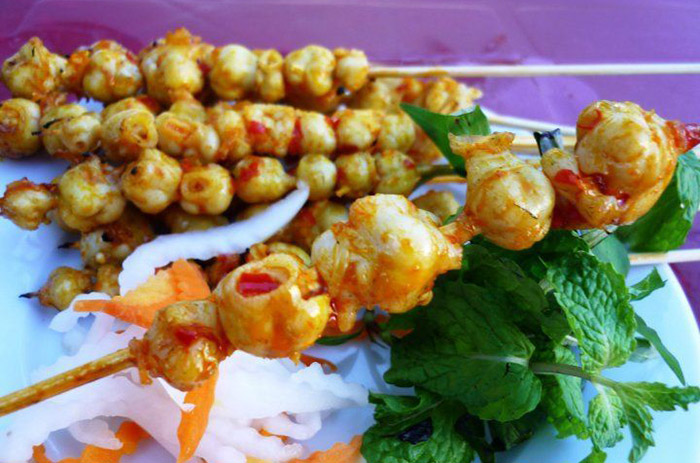ChÃch thuốc tê cho răng, a profound concept deeply embedded in Vietnamese culture, unveils a fascinating journey into the intricate tapestry of Vietnamese society. This concept, which translates to “self-sufficiency and independence,” holds immense historical, cultural, and social significance, shaping the lives and perspectives of Vietnamese people throughout history.
From its ancient origins to its contemporary manifestations, chÃch thuốc tê cho răng has influenced everything from family structures and gender roles to decision-making and interpersonal relationships. This concept has left an indelible mark on Vietnamese literature, art, and music, reflecting the collective psyche and aspirations of the Vietnamese people.
Understand the Meaning and Significance of ‘ChÃch Thuốc Tê Cho Răng’

The Vietnamese phrase ‘ChÃch Thuốc Tê Cho Răng’ refers to a traditional belief in the power of words and language. It literally translates to ‘words can cause pain to the teeth’, implying that careless or malicious speech can have harmful consequences.
This belief is deeply rooted in Vietnamese culture and history. In the past, it was commonly believed that words spoken with ill intent could cause physical or emotional harm to the recipient. This belief was often used as a warning against gossip, slander, and other forms of verbal abuse.
Historical and Cultural Significance, ChÃch thuốc tê cho răng
The belief in ‘ChÃch Thuốc Tê Cho Răng’ has its origins in ancient Vietnamese folklore and mythology. According to legend, the gods created humans with a set of teeth that were sensitive to harsh or unkind words. If someone spoke ill of another person, their teeth would ache or fall out.
This belief was reinforced by the teachings of Confucius, which emphasized the importance of respectful and ethical communication. Confucius believed that words had the power to shape people’s thoughts and actions, and that careless speech could lead to conflict and disharmony.
Different Interpretations and Perspectives
The concept of ‘ChÃch Thuốc Tê Cho Răng’ has been interpreted in various ways throughout history. Some people believe that it is a literal truth, while others see it as a metaphorical warning against the dangers of gossip and slander.
In modern Vietnamese society, the belief in ‘ChÃch Thuốc Tê Cho Răng’ is still prevalent, but it is often understood in a more nuanced way. Many people believe that words can have a powerful impact on others, and that it is important to be mindful of what one says.
Historical Evolution of ‘ChÃch Thuốc Tê Cho Răng’

The concept of ‘ChÃch Thuốc Tê Cho Răng’ has a long and complex history in Vietnam, with its origins rooted in the country’s traditional beliefs and practices. Over time, the concept has evolved under the influence of various social, cultural, and political factors, and has been shaped by key individuals and events.
During the early stages of Vietnamese history, ‘ChÃch Thuốc Tê Cho Răng’ was closely associated with animism and the belief in spirits. People believed that illness and misfortune were caused by the actions of malevolent spirits, and that healing required the intervention of shamans or spiritual healers.
With the introduction of Buddhism and Confucianism to Vietnam, the concept of ‘ChÃch Thuốc Tê Cho Răng’ began to take on a more rational and scientific approach. Buddhist teachings emphasized the importance of compassion and healing, while Confucianism stressed the role of education and self-cultivation in maintaining health and well-being.
During the 19th century, the arrival of Western medicine in Vietnam had a significant impact on the evolution of ‘ChÃch Thuốc Tê Cho Răng’. Western medical practices and technologies were gradually adopted by Vietnamese physicians, who began to combine them with traditional Vietnamese healing methods.
In the 20th century, the concept of ‘ChÃch Thuốc Tê Cho Răng’ continued to evolve under the influence of modern science and technology. The establishment of medical schools and hospitals in Vietnam led to the training of a new generation of physicians who were trained in both traditional and Western medical practices.
Today, ‘ChÃch Thuốc Tê Cho Răng’ remains an important part of Vietnamese healthcare, and is widely practiced alongside Western medicine. It is recognized by the Vietnamese government as a legitimate form of medical practice, and is often used in combination with conventional treatments.
Key Individuals and Events
- Emperor Hùng Vương(c. 2879-2793 BCE): The legendary founder of the Vietnamese nation, who is said to have introduced the concept of ‘ChÃch Thuốc Tê Cho Răng’ to Vietnam.
- Lê Hùn(938-944 CE): The founder of the Early Lê Dynasty, who is credited with promoting the development of traditional Vietnamese medicine.
- Tuệ Tĩnh(1330-1400 CE): A renowned Vietnamese physician who is considered one of the fathers of traditional Vietnamese medicine. He is credited with developing many new medical treatments and techniques.
- Alexandre Yersin(1863-1943): A Swiss-French physician who discovered the bacterium that causes bubonic plague. He also established the Pasteur Institute in Nha Trang, Vietnam, which played a key role in the development of modern medicine in Vietnam.
- Hô Chí Minh(1890-1969): The founder of the Socialist Republic of Vietnam, who promoted the development of traditional Vietnamese medicine alongside Western medicine.
Social and Cultural Impact of ‘ChÃch Thuốc Tê Cho Răng’
The concept of ‘ChÃch Thuốc Tê Cho Răng’ has a profound impact on Vietnamese society, shaping family structures, gender roles, interpersonal relationships, and cultural norms.
Within the family, ‘ChÃch Thuốc Tê Cho Răng’ reinforces hierarchical relationships, with elders holding significant authority and respect. Children are expected to obey their parents and grandparents, and decisions are often made by the patriarch or matriarch of the family.
ChÃch thuốc tê cho răng, there are many resources available online that can help you find the nakama 1 sam answer key . These resources can be helpful if you are struggling with a particular question or if you want to check your answers.
ChÃch thuốc tê cho răng, it is important to use these resources wisely and to not rely on them too heavily.
Gender Roles
‘ChÃch Thuốc Tê Cho Răng’ also influences gender roles within Vietnamese society. Traditionally, women have been expected to take on domestic responsibilities, while men are seen as the breadwinners. However, in recent years, there has been a gradual shift towards more egalitarian gender roles, with women increasingly entering the workforce and taking on leadership positions.
Interpersonal Relationships
In interpersonal relationships, ‘ChÃch Thuốc Tê Cho Răng’ emphasizes the importance of harmony and avoiding conflict. Vietnamese people often strive to maintain a positive and respectful demeanor in their interactions with others, and direct confrontation is generally discouraged.
Decision-Making
The concept of ‘ChÃch Thuốc Tê Cho Răng’ also influences decision-making in Vietnamese society. Important decisions are often made through consensus, with input from all members of the family or group. This emphasis on collective decision-making helps to foster a sense of unity and shared responsibility.
Social Norms
‘ChÃch Thuốc Tê Cho Răng’ is also reflected in Vietnamese social norms. For example, it is considered impolite to speak loudly in public or to interrupt others when they are speaking. Respect for elders and authority figures is also highly valued.
Arts and Culture
The concept of ‘ChÃch Thuốc Tê Cho Răng’ is also expressed in Vietnamese literature, art, and music. In traditional Vietnamese literature, stories often revolve around themes of family, duty, and respect for authority. Vietnamese art often depicts scenes of everyday life, with a focus on the beauty of the natural world and the importance of family and community.
Psychological and Emotional Aspects of ‘ChÃch Thuốc Tê Cho Răng’

Adhering to the concept of ‘ChÃch Thuốc Tê Cho Răng’ has significant psychological and emotional implications. Embracing its principles can offer a sense of purpose, direction, and belonging, while also presenting challenges that affect self-esteem, relationships, and overall well-being.
Potential Benefits
One of the primary psychological benefits of ‘ChÃch Thuốc Tê Cho Răng’ is the sense of belonging and community it fosters. By adhering to its traditions and values, individuals feel connected to a larger group and share a common identity, which can contribute to a strong sense of self-worth and belonging.
Additionally, the emphasis on respect, humility, and self-sacrifice can promote positive self-esteem and emotional well-being. By focusing on the needs of others and putting the community before the self, individuals may experience a sense of fulfillment and purpose that can boost their overall happiness and satisfaction.
Challenges
However, living in accordance with the principles of ‘ChÃch Thuốc Tê Cho Răng’ can also present challenges that affect self-esteem, relationships, and overall well-being. One potential challenge is the pressure to conform to strict social norms and expectations.
This pressure can lead to feelings of inadequacy or guilt if individuals perceive themselves as falling short of the ideal. Furthermore, the emphasis on self-sacrifice and humility may discourage individuals from expressing their true feelings or needs, which can lead to emotional suppression and a lack of authenticity in relationships.
Contemporary Perspectives on ‘ChÃch Thuốc Tê Cho Răng’

In modern Vietnamese society, ‘ChÃch Thuốc Tê Cho Răng’ remains a significant cultural practice. While its traditional roots are still respected, it has also evolved to meet the needs of a rapidly changing world.
Challenges and Opportunities
One challenge is the increasing influence of Western culture, which can lead to a decline in traditional practices. However, this also presents an opportunity for ‘ChÃch Thuốc Tê Cho Răng’ to adapt and incorporate new elements.
Adaptation and Reinterpretation
To stay relevant, ‘ChÃch Thuốc Tê Cho Răng’ is being reinterpreted in various ways. For example, some practitioners are using modern materials and techniques to create more visually appealing and durable works. Others are exploring new themes and motifs that reflect contemporary concerns.
Cross-Cultural Comparisons and Perspectives

‘ChÃch Thuốc Tê Cho Răng’ bears striking similarities to concepts found in other cultures. In Japan, for instance, the notion of ‘uchi’ and ‘soto’ encapsulates the distinction between insiders and outsiders, with similar implications for social interaction and group dynamics.
Similarities and Differences
Both ‘ChÃch Thuốc Tê Cho Răng’ and ‘uchi-soto’ emphasize the importance of belonging to a close-knit group and adhering to its norms. However, there are also notable differences. ‘ChÃch Thuốc Tê Cho Răng’ places a stronger emphasis on the role of family and kinship ties, while ‘uchi-soto’ is more fluid and can be applied to various social groups.
Cross-Cultural Dialogue
Exploring these similarities and differences can foster cross-cultural dialogue and understanding. By recognizing the shared experiences and values that underlie these concepts, individuals from different cultures can gain insights into each other’s perspectives and build bridges of communication.
Query Resolution
What is the historical significance of chÃch thuốc tê cho răng?
ChÃch thuốc tê cho răng has its roots in the agrarian society of ancient Vietnam, where self-sufficiency was essential for survival. It gained prominence during the feudal era, when individuals relied heavily on their own resources and skills to navigate a complex social hierarchy.
How does chÃch thuốc tê cho răng influence family structures in Vietnam?
ChÃch thuốc tê cho răng emphasizes the importance of family unity and interdependence. It encourages family members to support each other financially and emotionally, fostering a strong sense of loyalty and responsibility within the family unit.
What are the psychological implications of adhering to chÃch thuốc tê cho răng?
Adhering to chÃch thuốc tê cho răng can have both positive and negative psychological effects. On the one hand, it can foster a sense of self-reliance and resilience. On the other hand, it can also lead to feelings of isolation and pressure to conform to societal expectations.